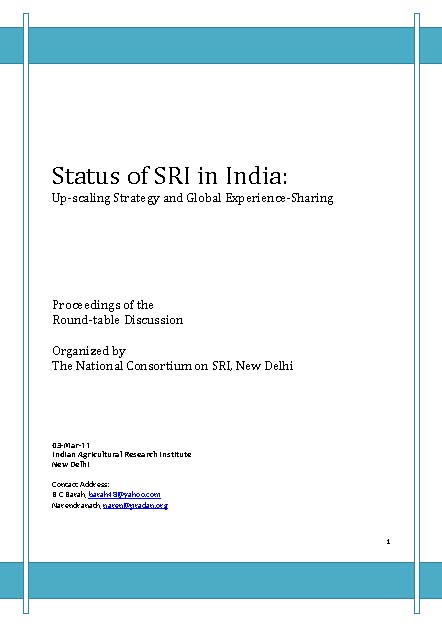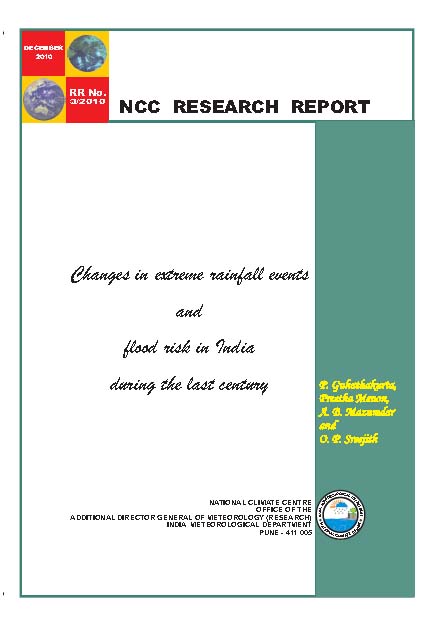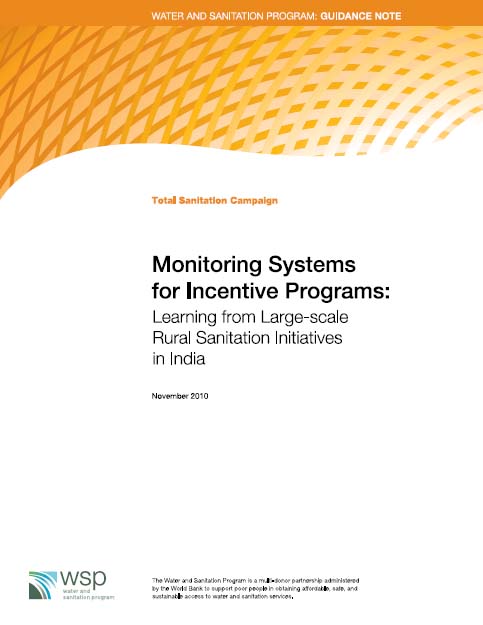/regions/india
India
Centre for Science and Environment is looking for Team Head - Renewable Energy Programme
Posted on 26 May, 2011 12:59 PMThe Centre for Science and Environment, a non-profit institution known for its rigorous and scientific policy research and advocacy on environmental issues is looking for a Team Head to steer its Renewable Energy Programme.
Inviting abstracts for documenting flood-induced conflicts in India - Apply by 8th June, 2011
Posted on 26 May, 2011 12:57 PM
The Forum for Policy Dialogue on Water Conflicts in India, a network of organisations and individuals having interest, experience and expertise in understanding conflicts arising around water in the country and exploring options to resolve these water conflicts in the interests of peace and equitable sharing, management and development of water resources. The Forum presently is in its second phase of work and the focus is on conflict documentation, conflict resolution and conflict prevention. Hence, an effort to document flood induced conflicts in India, an issue that has remained unexplored until date. In fact in its first phase the Forum had documented more than 60 cases of different types of water conflicts and this compendium has published by Routledge as a book: Water Conflicts in India: A Million Revolts in the Making.
Status of SRI in India - Upscaling strategy and global experience sharing - A roundtable discussion at IARI
Posted on 26 May, 2011 08:16 AM The issues of sustainable food security assume national importance, as the country is debating on the crucial National Food Security Bill. Breaking yield barrier, accelerating growth of production and ensuring sustainability are the critical policy concerns in Indian agriculture.
The issues of sustainable food security assume national importance, as the country is debating on the crucial National Food Security Bill. Breaking yield barrier, accelerating growth of production and ensuring sustainability are the critical policy concerns in Indian agriculture.
The roundtable discussion underlined the need to harness the opportunities offered by the System of Rice Intensification (SRI) and its extensions to crop production in many areas. This may help in substantially reducing the need for embedded subsidies in every grain of rice while achieving increases in yield by 15 per cent to 40 per cent or more over present conventional methods. In India about 1.7 million farmers are estimated to have adopted the technique on more than 7.5 lakh hectares across 160 districts, without any major project funding so far. Tamil Nadu and Tripura are the leading states for adoption of SRI, but many others are following suit.
Ascenso management and consulting services is looking for Environment professional, Accounts and Admin officer, New Delhi
Posted on 24 May, 2011 12:55 PMAscenso Management & Consulting Services Pvt. Ltd (AMCSPL), New Delhi is an independent consultancy company offering high quality technical services in the field of Environment, Health & Safety. It was started as Ascent Management & Consulting Group which has been active in this field since its inception.
International training on Geo-informatics and its application on Biodiversity Conservation –Aaranyak – Apply by 1st August, 2011
Posted on 24 May, 2011 12:23 PMAaranyak is a registered society working in the field of biodiversity conservation in North East India since 1989. Its strength lies in applied research in biological and social field and its thrust area of work is the North Eastern India and Eastern Himalayas.
Training on process documentation of development interventions – Sambodhi Research and Management Institute, at New Delhi
Posted on 24 May, 2011 12:02 PMSambodhi was conceptualized in 2005 to offer Research and Advisory services to different organizations. We are a rapidly growing organization. We have delivered effective results in Development Consulting and Research, Project Management Advisory and Business Analytics. Training is yet another area where we have made our presence felt convincingly.
Swaraj University two year learning program
Posted on 24 May, 2011 11:46 AMSwaraj University is a two-year learning program that creates opportunities for young learners to develop the knowledge, skills and perspectives they need to create viable green-collar enterprises and to support healthy and resilient local communities. This self-directed learning process invites learners to identify their hearts’ visions and engages them in developing the skills, relationships and practices they need to manifest those visions.
Call for proposals - Indian-European Research Networking Programme, ICSSR - Apply by 15th September 2011
Posted on 24 May, 2011 11:34 AMThe Indian Council of Social Science Research (ICSSR, India) in association with the Agence Nationale de la Recherche (ANR, France), the Deutsche Forschungsgemeinschaft (DFG, Germany), the Economic and Social Research Council (ESRC, UK) and the Netherlands Organisation for Scientific Research (NWO, The Netherlands) invite applications for joint social science networking proposals between research centres in the participating European countries and India.
Changes in extreme rainfall events and flood risk in India during the last century- A report by the India Meteorological Department
Posted on 21 May, 2011 05:53 PM The occurrences of some exceptionally heavy rainfall during the recent years causing flash floods in many areas necessitated the study of long term changes in extreme rainfall over India.
The occurrences of some exceptionally heavy rainfall during the recent years causing flash floods in many areas necessitated the study of long term changes in extreme rainfall over India.
The study includes the analysis of the frequency of rainy days, number of rainy days and heavy rainfall days as well as one-day extreme rainfall and return period analysis in order to observe the impact of climate change on extreme weather events and flood risk. It has been found that frequency of heavy rainfall events are decreasing in major parts of the central and north India while increasing in peninsular India, east and north east India.
The report provides interesting findings that are useful for hydrological planning and disaster managements such as –
Monitoring system for incentive programs – Learning from large-scale rural sanitation initiatives in India – A report by the Water and Sanitation Programme
Posted on 21 May, 2011 02:15 PM It is a part of the Global Scaling Up Rural Sanitation project of the Water and Sanitation Programme, World Bank and focuses on learning how to combine the approaches of Community Led Total Sanitation (CLTS), behavior change communications, and social marketing of sanitation to generate sanitation demand and strengthen the supply of sanitation products and services at scale, leading to improved health for people in rural areas. This is one in a series of knowledge products designed to showcase project findings, assessments and lessons learned in the project.
It is a part of the Global Scaling Up Rural Sanitation project of the Water and Sanitation Programme, World Bank and focuses on learning how to combine the approaches of Community Led Total Sanitation (CLTS), behavior change communications, and social marketing of sanitation to generate sanitation demand and strengthen the supply of sanitation products and services at scale, leading to improved health for people in rural areas. This is one in a series of knowledge products designed to showcase project findings, assessments and lessons learned in the project.
Over the last few years, the concept of open-defecation free communities has emerged as one of the building blocks toward achieving total sanitation. The term ‘access’ is widely used to capture increase in sanitation usage. However, a clean environment is a public good. Hence, there was a need to achieve total sanitation at the community level to realize public health benefits. This has led policy makers and practitioners to adopt strategies that achieve community-wide total sanitation status, which includes the community becoming open-defecation free, and adopting safe hygiene and environmental sanitation practices.